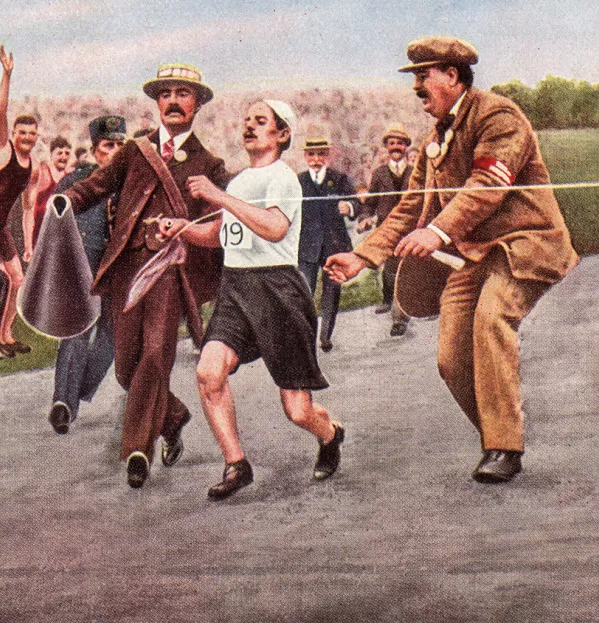Rise in malpractice linked to pressure on teachers

Incidents of teacher malpractice have trebled in a year, according to figures published for the first time by the Scottish Qualifications Authority (SQA). School staff say they are not surprised.
We take a look at the figures and why they are on the rise.
So what do the figures show?
That last year there were 51 proven malpractice incidents - up from 18 in 2016.
What counts as malpractice?
The most common type of incident involved teachers giving improper levels of support to help pupils pass qualifications.
Of the 51 incidents of malpractice, 34 allegedly involved teachers giving pupils “more support than the specific qualification assessment arrangements allowed”.
They also show that concern about malpractice is increasing. Last year there were 51 proven incidents but 108 concerns about practice logged by the SQA - that’s an increase from nine concerns in 2011.
Are teachers engaging in bad practice to help children gain qualifications?
The blunt answer is “yes”. One case that came before the General Teaching Council for Scotland last year involved a history teacher struck off for allowing pupils to take in essay plans over the 200-word limit into an extended essay exam, before instructing them to rewrite it for submission.
But malpractice can also come about through negligence in applying SQA requirements or ignorance of SQA requirements. According to the SQA, examples might include seeking approval to offer a new qualification after the deadline, or requesting late certification of learners.
What do teachers say?
Larry Flanagan, general secretary of the EIS teaching union, has called for clearer guidance from the SQA. He points out that there has been a lot of change to both the curriculum and qualifications - as well as a greater emphasis on internal assessment - and that teachers need to be supported to understand the level of support that can be offered to pupils.
Teachers on Twitter also agreed that the issue could be “mispractice” arising out of all the change, not malpractice. One said: “The complexity and volume of change from an inept SQA has consequences.”
However, others felt that teachers were under pressure to get students through qualifications. Last year Kevin Campbell, the president of the Scottish Secondary Teachers’ Association, told Tes Scotland that pressure to get pupils through qualifications was leading to “some pretty dodgy practices in schools”.
A Scottish teacher on Twitter said that “last year, three boys at my school passed modern studies N4 in one day, having never attended a single lesson”.
Another said pupils were being presented at the wrong level because “subject specialists aren’t listened to when concerns about ability are raised”.
Is there other evidence to suggest this?
Yes. The SQA itself found, when it conducted fieldwork last year, that almost three-quarters of Scottish secondary schools felt under pressure from parents to present pupils for qualifications they were unsuited for.
The credibility of N4 is often cited as the reason for this. Some question the worth of the qualification - which is entirely internally assessed - putting pressure on schools to get pupils through the more highly regarded N5 qualification.
The SQA report said: “Nearly all teachers, to a greater or lesser degree, felt pressure to mispresent learners at National 5 despite learner performance evidence indicating National 4 presentation was more appropriate.”
It added: “This pressure could come from parents and carers mainly, but also from [senior management teams] and occasionally the local authority.”
What are the consequences for schools when SQA identifies ‘malpractice’?
The SQA has a range of penalties, from issuing a written warning, to barring schools from continuing to deliver its qualifications.
It doesn’t record how many times these different sanctions are imposed.
What else did the statistics show?
Cases of pupils cheating in exams were published on the same day. They show an increase in the number of pupils cheating in exams between 2016 and 2017, even though the number of entries for national qualifications dropped.
The most common form of cheating by pupils was plagiarism, then the use of mobile phones and collusion with others when the assessment was meant to be completed independently.
Overall, there were 183 penalties issued to pupils in 2017, compared with 169 the previous year.
You need a Tes subscription to read this article
Subscribe now to read this article and get other subscriber-only content:
- Unlimited access to all Tes magazine content
- Exclusive subscriber-only stories
- Award-winning email newsletters
Already a subscriber? Log in
You need a subscription to read this article
Subscribe now to read this article and get other subscriber-only content, including:
- Unlimited access to all Tes magazine content
- Exclusive subscriber-only stories
- Award-winning email newsletters